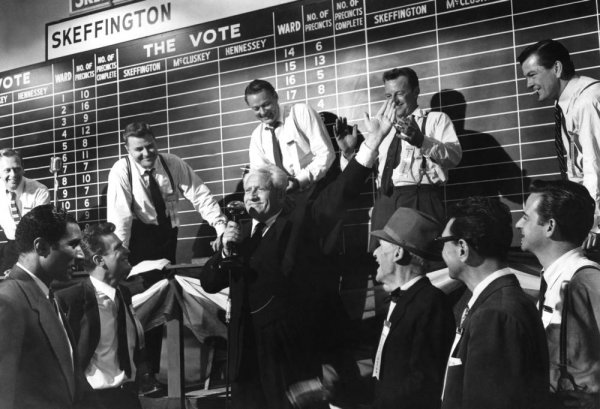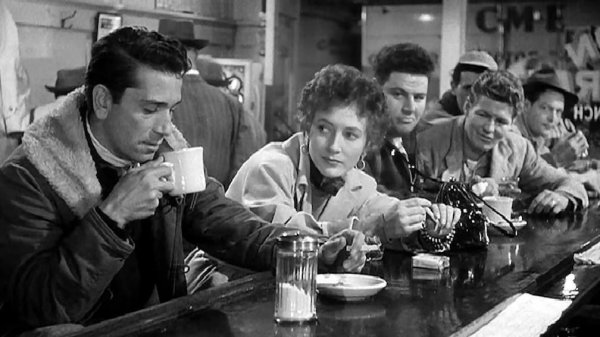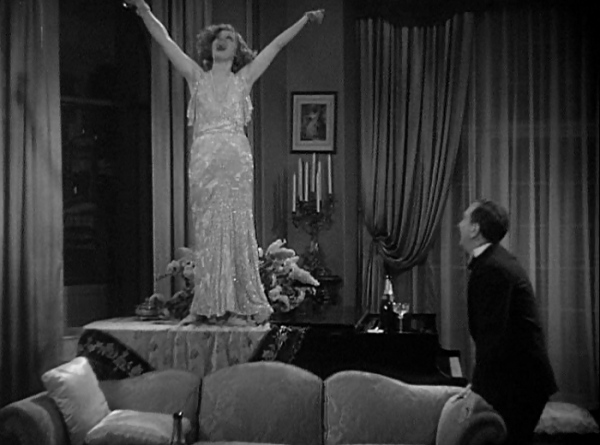- Messages
- 17,483
- Location
- New York City

The Last Hurrah from 1958 with Spencer Tracy, Jeffrey Hunter, Pat O'Brien, Donald Crisp and on and on - great cast.
It's a good movie about politics, just not as good as it thinks it is and not as good as the numerous better political movies that, in only a few years, were about to spill out of the early '60s - Seven Days In May, Fail Safe, The Best Man and more.
Long-time Irish mayor (Tracy) of (effectively, though it never says) Boston is running his last campaign against the candidate put forward by the "Brahmins" desirous to put the "Irish," "immigrants," "workers" back in their place by taking the reins of power back for the old Protestant order.
Fair enough story, but unfortunately, the writers and director John Ford stereotype out both sides - the working-class politicians and supporters are almost all goodhearted and decent; whereas, the Brahmins are cardboard evil - prejudice cheaters that quickly lose their temper when confronted.
Probably meant to represent the "big" issues in a personal way - Tracy's nephew (Hunter) is an "impartial" newspaper man who is dating one of the leading Brahmin's daughter, but he becomes close to Tracy during the campaign. Somehow it doesn't really work as, again, the issues are all too black and white, but it is enjoyable to see pros like Tracy and Hunter carry a scene.
It's a good effort, but like other '50s political movies, such as Washington Story or Born Yesterday, it doesn't dig deep enough into the dirty inner workings of politics or admit the compromises that even the "heroes" have to make to win, but it's still worth the viewing time for its quality of acting and fun time travel to the '50s.




